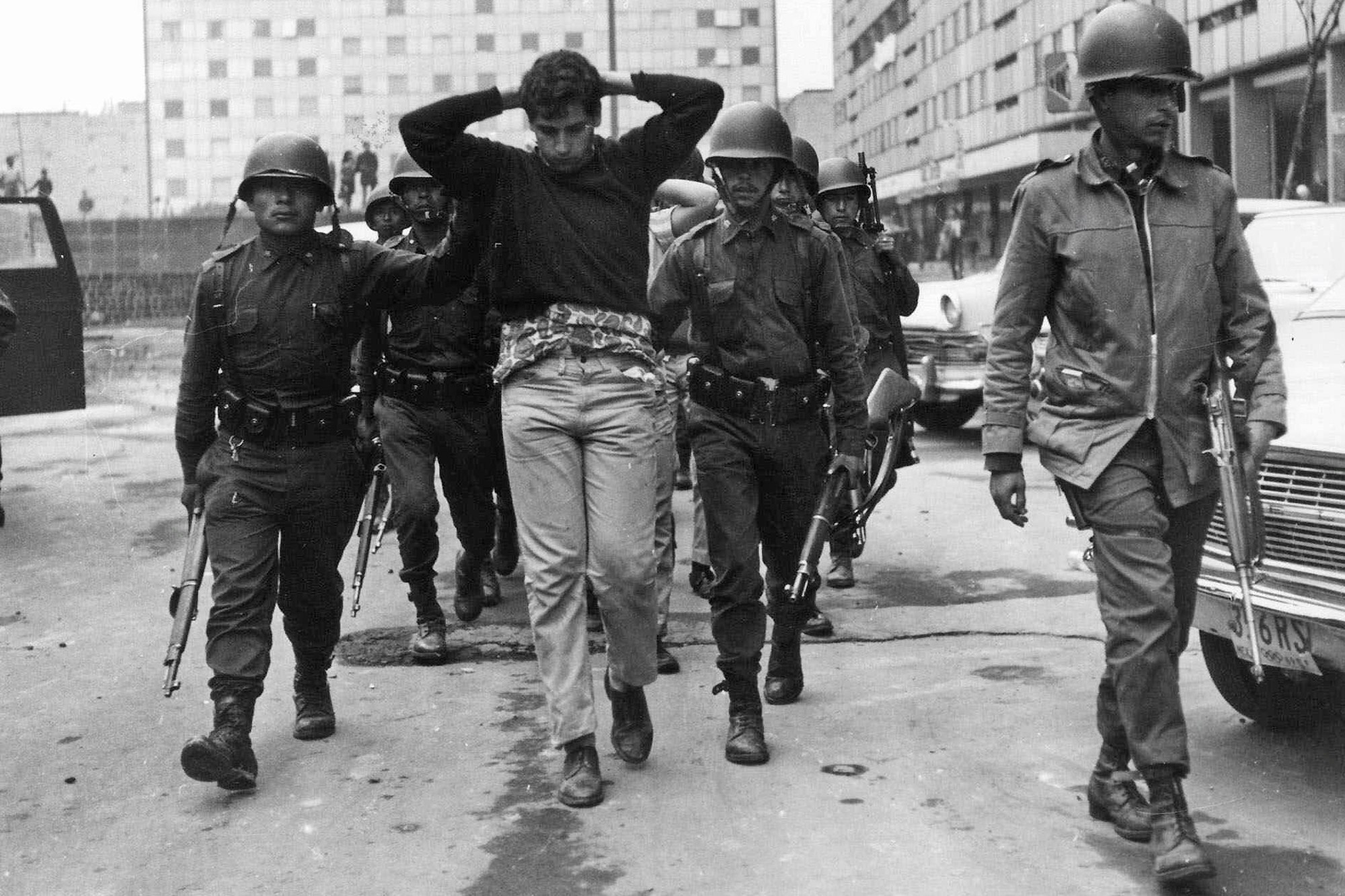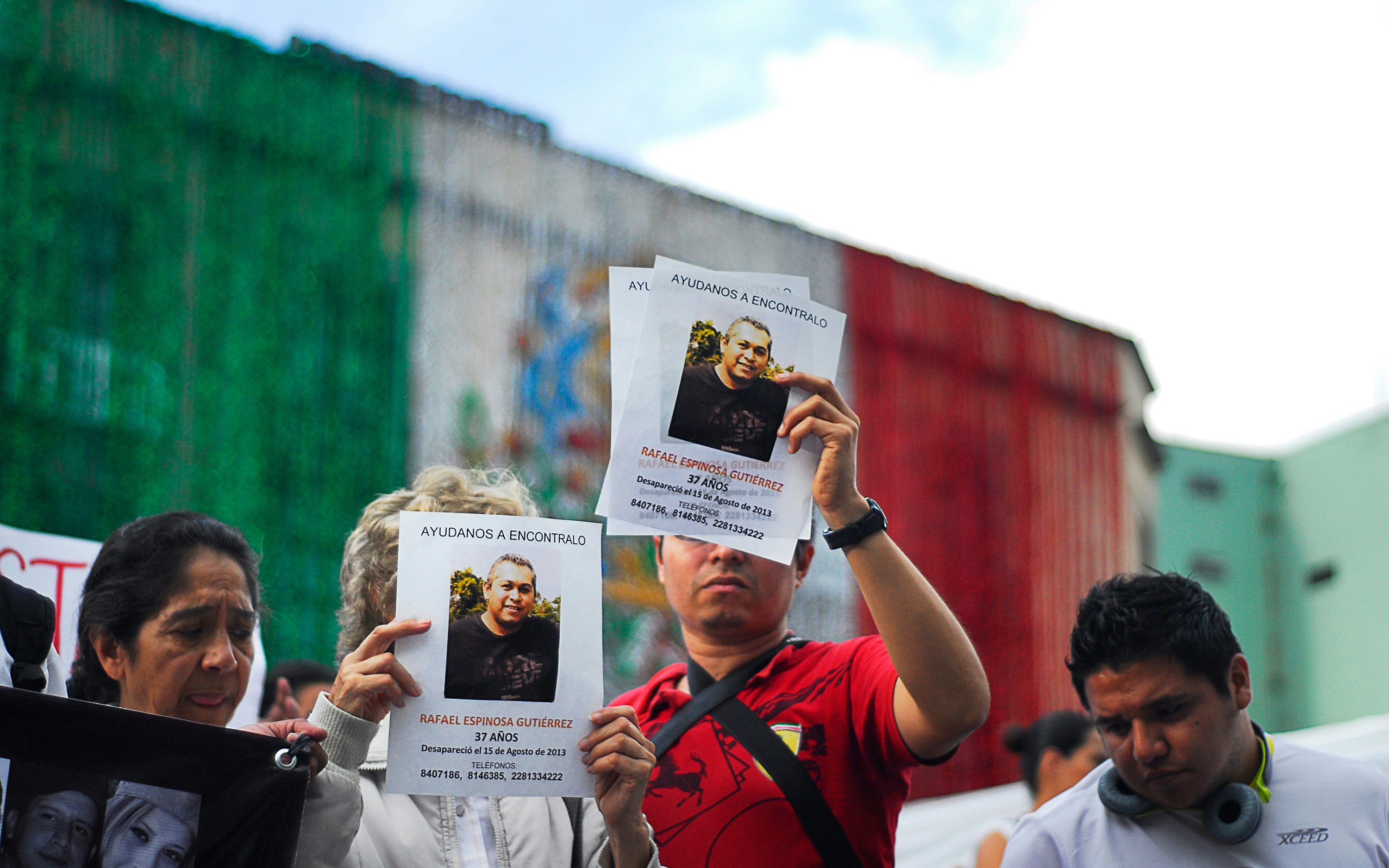Naming the Disappeared of Mexico's Dirty War
A challenge to the federal prosecutor's refusal to disclose victim names
From 1968 to 1982, during what came to be known as the Dirty War, Mexican authorities forcibly disappeared more than 1,200 people, usually because the state perceived them as a threat. Decades later, prosecutors have closed the investigations into many of these disappearances, without any prosecution or accountability. Prosecutors refuse to disclose the names of the victims whose cases they are closing.
The Open Society Justice Initiative intervened because obtaining the names of the victims of enforced disappearance is a step towards establishing accountability, and to realizing the right to truth.
Facts
In a series of applications, the plaintiff requested access to the public version of the 134 closed criminal investigations of enforced disappearance during Mexico’s Dirty War, including the names of the victims. The requests sought to secure information about human rights violations and apply the very progressive Mexican freedom of information law, as part of efforts to hold perpetrators accountable. This information has been denied on the grounds that the information was related to criminal investigations and personal data, and in order to protect the “dignity” of the victims. The plaintiff challenged that decision before the Information Commission (INAI) in two separate cases. The INAI decided that the information requested could not be disclosed on the ground that it includes personal data.
The Open Society Justice Initiative, along with Litiga OLE, a local legal group, filed constitutional challenges (amparos) in a Federal Administrative Court of First Instance. That court revoked the resolution by INAI, thereby compelling INAI to issue a new one that includes all the points that weren’t considered, and ordering the PGR (Procuraduría General de la República, or Attorney General) to disclose the information requested. This decision was challenged by both the PGR and INAI before the Appeals Court, which referred both cases to the Supreme Court due to the national relevance of the case. The Supreme Court ruled in favor of the plaintiff in both cases, recognizing their right to information and the right to truth.
Open Society Justice Initiative Involvement
The Open Society Justice Initiative participated as co-counsel, providing an overview of international law and standards relevant to the case, as well as legal precedents established at the domestic level in other countries of the region.
Arguments
The Justice Initiative argued that the classification of the requested information—names of the victims of enforced disappearance—as confidential is out of step with international and national standards because (1) it violates the right to information, and (2) it violates the right to truth.
Relevance of international law: Under Article 1 of the Mexican Constitution, all persons enjoy recognized human rights and the corresponding protective guarantees, contained both in the constitution and in the international treaties to which the Mexican State is a party, affording the individual with the broadest protection.
Right to information about grave human rights violations: In cases of gross violations of human rights or serious breaches of international humanitarian law, the right to information imposes duties on the state to disclose information as a matter of right for victims, investigators, and the broader public. State laws and practice are increasingly consistent with the principle that information related to gross human rights violations and crimes against humanity should be subject to mandatory or presumptive disclosure.
Right to truth: The right to truth includes, at a minimum, the right to know the full and complete truth about the events that transpired, and their specific circumstances and participants. This is a right for both victims and the broader public, related to the right to information and the right to an effective investigation. The Inter-American Court of Human Rights and the Inter-American Commission have recognized a separate right to truth, grounded in Articles 5, 8, 13, and 25, in conjunction with Article 1, of the American Convention. The right to access the names of the victims of forced disappearances is one of the core elements to knowing what happened in each case and the recognition of their legal personality.
Heightened state obligations in cases of enforced disappearances: The crime of enforced disappearance denies the existence of the disappeared individual. Leaving the victims anonymous to the public perpetuates this denial and undermines the right to know the full and complete truth—for the victim, the family, and society. The state’s refusal to disclose publicly the identity of victims of disappearances also heightens the possibility of impunity and secrecy around the basic circumstances of forced disappearances, which is the antithesis of the collective right to truth.
Mexico's Supreme Court granted petitioners the right to gain access to the names of victims, and recognized that in the case of investigations related to grave human rights violations, as is the case of enforced disappearances, the principle of maximum publicity must always override classified or otherwise confidential information. This is because of the overwhelming interest of society, as a whole, to know the truth of what happened.
Decision by the Supreme Court that information must be disclosed.
Appeals Court references the case to the Supreme Court.
Decision by the Administrative Court of First Instance, overturning previous denials.
Information Commission (INAI) rules that the information must be withheld.
Mexico denies the request to disclose information.
Information requests sent.
Related Work
A Victory for the Truth about Mexico’s “Dirty War”
A ruling from Mexico’s Supreme Court of Justice has given an important boost to those who want a proper accounting for abuses that included forced disappearances.

Case Watch: A Mother’s Search for Her Son Leads to Groundbreaking Decision on Disappearances in Mexico
In a major victory for the hundreds of disappeared people and their loved ones in Mexico, the nation’s highest court recognized the mandatory nature of urgent actions issued by the UN Committee on Enforced Disappearances.

Human Rights Groups Alert U.N. to Alarming Actions by Mexican Prosecutors
More than 120 human rights groups and individuals are warning the U.N. about alarming trends emerging from Mexico’s new national Prosecutor General’s Office and the State’s Prosecution services.